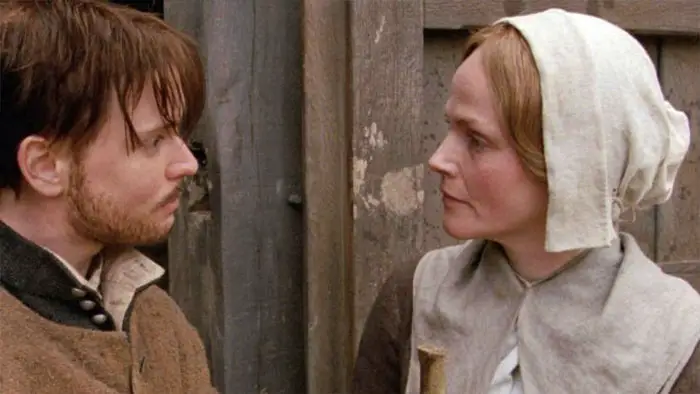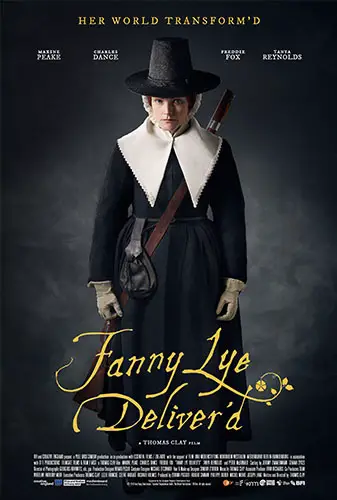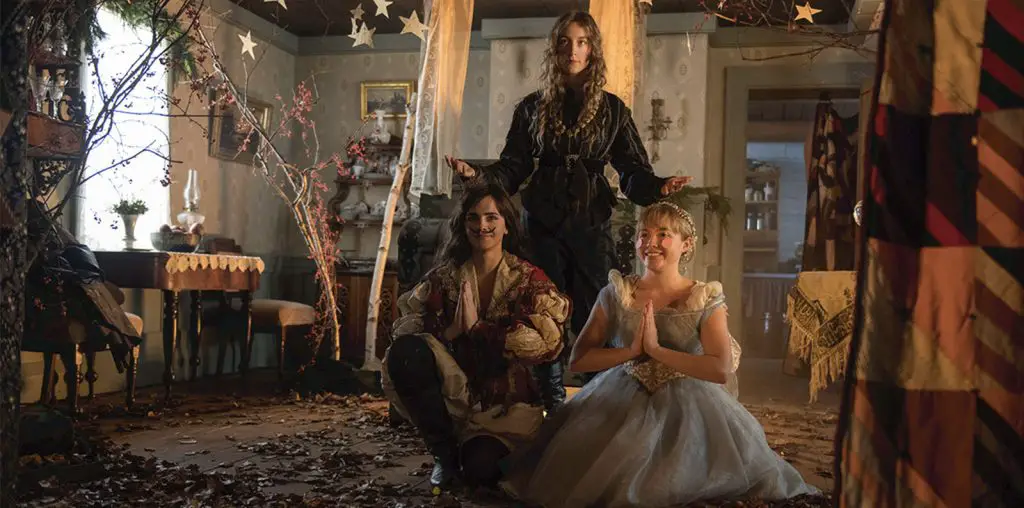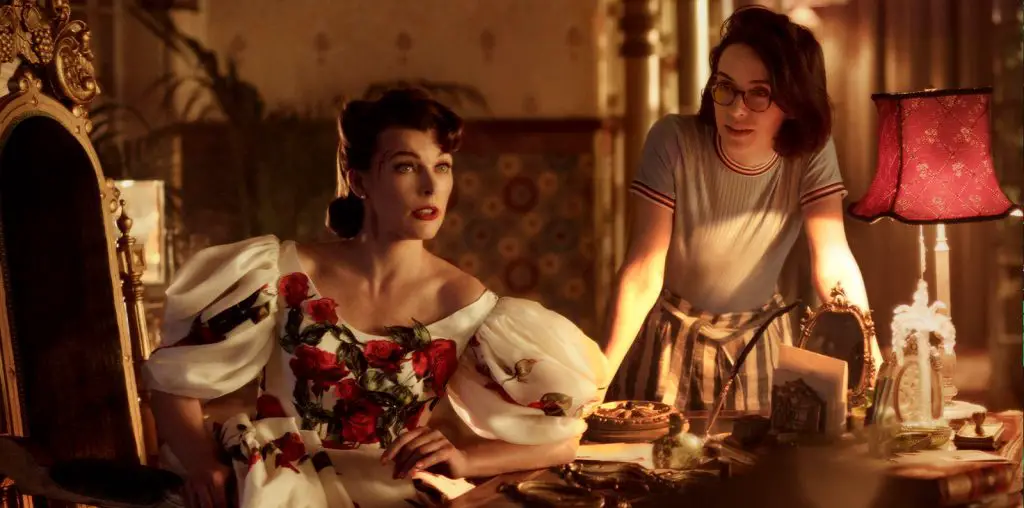
What ensues is a contentious power play between John, who represents the tyrannical forces from which the couple is fleeing, and Thomas, whose progressive tendencies (playing with children! steamy lovemaking!) enrage John. In the middle is Fanny, torn between her loyalty to her husband and discovering the full potential of her feminine power. One wrenching experience leads to another, culminating in a horrifying, unforgettable finale. Clay provides just a droplet of hope before the credits roll.
Clearly, a lot of research went into the language, clothes, mannerisms, and, above all, the sociopolitical regime of the era. The characters speak Olde English, which was music to my ears but may sound like nails-against-chalkboard to others. Clay knows his way around a riveting sequence, as cinematographer Giorgos Arvanitis’s swooping camera ensures that Fanny Lye Deliver’d never stagnates in its theatrical roots. Many moments will remain burn’d in your memory: John chastising, then whipping his wife and child for playing outside; Fanny’s mind-altering conversation with Rebecca; the tense confrontation between John and the sheriff; and – the highlight – John becoming a cuckold, helplessly watching as his wife (willingly? unwillingly?) participates in a kinky threesome.

“Clay knows his way around a riveting sequence…”
Clay, who wrote, directed, edited, and scored the film, deserves major recognition for the gargantuan task he’s pulled off. His stylized dialogue resonates in our turbulent era, especially when spoken by such a spectacular cast. “Never let a woman best you, boy, have I told you nothing?” John scolds his son. “I hope that righteousness is not the only thing he’s skilled at finding,” Rebecca cheekily intones to Fanny during an intimate moment. The entire tale is immersed in ambiguity, represented by the fog that relentlessly hangs over the farm. Spectral figures emerge from and disappear into it, resembling ghosts of our past and dark, hazy omens of our future.
What was once considered transgressions and sins “may become, from darkness, light.” The deeply traumatizing and sensual Fanny Lye Deliver’d, through its remarkable heroine and highly limited setting speaks epic truths about our history’s paradigm shifts, and how some are enlightened by change, while others prefer to languish. Sure, at almost two hours, it could have used a little trimming, and at times it verges on being a tad too enamored of its own verbal dexterity. One thing is clear: with Fanny Lye Deliver’d Clay firmly establishes himself as a powerhouse filmmaker. I can’t wait to see what he delivers next.

"…disregards convention, imbuing his film with an otherworldly, transcendental aura..."


